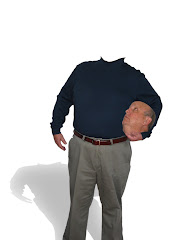Every since about 1709 when Christofori announced that he had invented an instrument to upscale the harpsichord, which plays all at one volume level -- no soft or loud -- that played both soft and loud -- which he appropriately named the "pianoforte" (which means "soft-loud" -- later the name was shorted to just "piano") -- people throughout the world have been entranced with the harmonic sound of the piano - it's richness and fullness in enabling musicians to play many notes at once or in rapid succession.
(An excellent history of the piano may be found at http://www.uk-piano.org/history/piano-tuner-history.html )
Most instruments are not solo instruments in the sense that they require an accompanianist, but not so with the piano. It can play alone as well as with combos, orchestras, or whatever. It's unique sound qualities make it the first choice in musical instruments for millions of folks the world over.
Because of that fact, multitudes of people around the world have purchased pianos and continue to purchase pianos in hopes of mastering the "musical monster with 88 ivory teeth". Some of the dominant manufacturers are Steinway, Yamaha, Baldwin, Kawaii, Bosendorfer and many others. Pianos come in various shapes and sizes, including:
Grand Pianos:
Parlor Grand. Size 4'5" to 5'5"
Baby Grand. Size 5'0" to 6'5"
Medium Studio Grand. Size 5'6" to 6'5"
Semi-Concert Grand. Size 6'6" to 8'0"
Concert Grand. Most concert grands are 9' in length
Upright Pianos:
Spinet. Size 35" to 39" tall.
Console. 40" to 44" tall.
Studio: 45" to 47" tall.
Professional. 48" to 52" tall.
Every since the invention of the piano, parents have signed their children up for piano lessons in hope they would become the next Mozart, or a least be able to entertain family and friends. But for every 100 kids that start piano lessons, probably less than 20% or so actually continue with the lessons long enough to play decently. Still, it is a good education in music, and certainly good for developing self-discipline and focus.
To really master piano playing, a beginning student must gradually learn many different disciplines and aspects of music including: sight-reading sheet music (or the score of a classical piece); fingering of scale passages and chord formations; keyboard chords, from major chords to minor chords to augmented chords to diminished chords to 7th chords and more; music theory, including major scales, minor scales, whole-tone and chromatic scales, and the "church modes", plus some specialty scales such as the Mediterranean scale, the blues scale, and so on; the tonic note or tonic tone, triads, arpeggios, the concept of key (key of C, key of Eb, key of F#, etc.) unisons, intervals, inversions, chords -- both primary and secondary, figured bass, chord symbols; dynamics and dynamic markings such as sforzando, presto, largo, allegro, etc, pedaling, body position, ear-training, music appreciation, a study of the great composers such as Bach, Mozart, Chopin, Beethoven, etc., interpretation, arranging, and a host of related subjects in the harmony and music theory areas.
This often involves years of learning at home with a teacher ( sometimes supplemented by online music lessons) and numerous music books, chord charts, fingering diagrams and musical scores. Meanwhile the student learns to play songs and classical pieces galore that contribute to the warmth of the home and the enjoyment of the family.
And if the student fails to become another Brubeck or Garner, he or she has still benefited tremendously in terms of music education, appreciation, the ability to concentrate, and many other qualities that flow out of having taken piano lessons. Plus he or she has brought the sound of music into their parent's home, and hopefully will continue with it when they form their own family.

